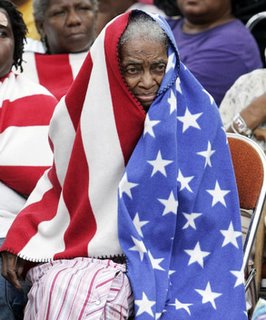Will try to correct whatever is wrong, but meanwhile the blog looks just fine with Firefox…
Albany Law School
Ambedkar University Delhi
American University Washington College of Law
Arizona State University College of Law
Australian National University College of Law
Barry University School of Law
Benjamin N. Cardozo School of Law
Birmingham City University School of Law
Birmingham Law School
Boston College Law School
Boston University School of Law
Brigham Young University School of Law
Bristol Law School
Brooklyn Law School
California Western School of Law
Case Western Reserve University
City University of New York
Cleveland State University College of Law
Columbia Law School
Cornell University Law School
Creighton University School of Law
Dalhousie University
DePaul University College of Law
Drake University Law School
Drexel University College of Law
Duke University School of Law
Durham Law School
Edinburgh Law School
Elon University School of Law
Emory University School of Law
Florida A&M University College of Law
Florida Coastal School of Law
Florida International University College of Law
Florida State University College of Law
Fordham Law School
George Washington University Law School
Georgetown University Law Center
Georgia State University College of Law
Golden Gate University School of Law
Gonzaga University School of Law
Hamline University School of Law
Harvard Law School
Hochschule Hannover Univeristy of Applied Sciences and Arts
Hofstra University School of Law
Howard University School of Law
Humbolt University Berlin Law Faculty
Hunter College Roosevelt Public Policy Institute
Illinois Institute of Technology Chicago-Kent College of Law
Indiana University Maurer School of Law
Indiana University School of Law - Indianapolis
John Marshall Law School
Keele University School and Department of Law
King's College London
La Trobe Law School
Lewis & Clark Law School
Louisiana State University Law Center
Loyola Law School Los Angeles
Loyola University Chicago School of Law
Loyola University New Orleans College of Law
Marquette University Law School
McGill University
Mercer University School of Law
Michigan State University College of Law
Mitchell Hamline School of Law
Monash University Faculty of Law
New England College of Law
New York Law School
New York University School of Law
Northeastern University School of Law
Northern Illinois University College of Law
Northwestern University School of Law
Nova Southeastern University Florida College of Law
O.P. Jindal University Global Law School
Occidental College
Ohio State University College of Law
Oklahoma City University School of Law
Osgoode Hall Law School York University
Pace Law School
- Alexander Greenawalt
- Audrey Rogers
- Barbara Atwell
- Bennett Gershman
- Bridget Crawford
- David Cassuto
- David Dorfman
- Don Doernberg
- Emily Waldman
- Gayl Westerman
- Horace Anderson
- Irene Johnson
- Janet Johnson
- Jeffrey Miller
- Jill Gross
- John Humbach
- Leslie Yalof Garfield
- Linda Fentiman
- Margaret Flint
- Marie Newman
- Michael Mushlin
- Michelle Simon
- Noa Ben-Asher
- Randolph McLaughlin
- S. David Cohen
- Shirley Lin
- Steven Goldberg
- Vanessa Merton
Pennsylvania State University
Pepperdine University School of Law
Princeton University
Queen Mary University of London
Queen's University Kingston
Rutgers Law School
Santa Clara University School of Law
Seattle University School of Law
Seton Hall University School of Law
Southern Methodist University School of Law
Southwestern Law School
St. John's University School of Law
St. Louis University School of Law
St. Mary's University School of Law
St. Thomas University School of Law
Stanford Law School
State University of New York at Buffalo
Stetson University College of Law
Suffolk University Law School
Syracuse University College of Law
Technorati
Tel Aviv University Buchmann Faculty of Law
Temple University Fox School of Business
Temple University School of Law
Texas A&M University School of Law
Texas Southern University School of Law
Texas Tech University School of Law
The University of Chicago
Thomas Cooley Law School
Thomas Jefferson School of Law
Touro College Jacob D. Fuchsberg Law Center
Tulane University Law School
Umeå University
Universidad de los Andes
University of Alabama School of Law
University of Arizona James E. Rogers College of Law
University of Arkansas
University of Arkansas at Little Rock School of Law
University of Baltimore School of Law
University of Bologna Law School
University of British Columbia Faculty of Law
University of California Berkeley
University of California College of the Law, San Francisco
University of California Davis School of Law
University of California Irvine School of Law
University of California Los Angeles
University of Cincinnati College of Law
University of Colorado School of Law
University of Connecticut School of Law
University of Dayton School of Law
University of Denver College of Law
University of Detroit Mercy School of Law
University of East Anglia Law School
University of Florida Levin College of Law
University of Georgia School of Law
University of Haifa
University of Hawai'i School of Law
University of Houston Law Center
University of Idaho College of Law
University of Illinois College of Law
University of Illinois Springfield Department of Legal Studies
University of Iowa College of Law
University of Kansas College of Arts & Sciences
University of Kansas School of Law
University of Kent Law School
University of Kentucky College of Law
University of La Verne College of Law
University of Leicester School of Law
University of Louisville School of Law
University of Maine School of Law
University of Manchester School of Law
University of Manitoba Faculty of Law
University of Maryland School of Law
University of Massachusetts Boston
University of Massachusetts School of Law
University of Miami School of Law
University of Michigan Law School
University of Minnesota Law School
University of Missouri-Kansas City
University of Montana School of Law
University of Nebraska College of Law
University of Nevada Las Vegas
University of New Hampshire School of Law
University of New Mexico School of Law
University of North Carolina School of Law
University of Oklahoma College of Law
University of Oregon School of Law
University of Ottawa Faculty of Law
University of Pennsylvania Law School
University of Pittsburgh School of Law
University of Puerto Rico School of Law
University of Queensland TC Beirne School of Law
University of Richmond School of Law
University of San Diego School of Law
University of San Francisco School of Law
University of Saskatchewan
University of South Carolina School of Law
University of South Dakota School of Law
University of Southern California Law School
University of Sunderland
University of Technology Sydney
University of Tennessee College of Law
University of Texas at Austin School of Law
University of the District of Columbia
University of the Pacific McGeorge School of Law
University of Toledo College of Law
University of Toronto
University of Tulsa College of Law
University of Utah
University of Victoria Faculty of Law
University of Virginia School of Law
University of Washington School of Law
University of Wisconsin Law School
Vanderbilt University Law School
Vermont Law School
Villanova University School of Law
Wake Forest University School of Law
Warwick School of Law
Washburn University School of Law
Washington & Lee University School of Law
Washington University in St. Louis
Wayne State University Law School
West Virginia University College of Law
Western New England School of Law
Western State College of Law
Widener University Commonwealth Law School
Widener University Delaware Law School
Willamette University College of Law
William and Mary Law School
Yale Law School
Categories
Meta
- Log in
- Entries feed
- Comments feed
- WordPress.org Is Viagra available for sale in the U.S.?




 Via the Legal Writing Prof Blog (
Via the Legal Writing Prof Blog (












 concerned to take stern remedial action at the first sign of a”fall.”Why do we hammer down on teen-age girls who, though perhaps not yet worldly wise, probably know what they want about as well as most people? Launching prosecutions for crimes that can bring a decade or more of imprisonment, and decades after that of sex-offender registration, residency restrictions and other miscellaneous hounding by government is no minor thing. It is certainly no way for a nation to treat its children.
concerned to take stern remedial action at the first sign of a”fall.”Why do we hammer down on teen-age girls who, though perhaps not yet worldly wise, probably know what they want about as well as most people? Launching prosecutions for crimes that can bring a decade or more of imprisonment, and decades after that of sex-offender registration, residency restrictions and other miscellaneous hounding by government is no minor thing. It is certainly no way for a nation to treat its children.



 Editors: Kathleen A. Bergin and Tracy L. McGaugh
Editors: Kathleen A. Bergin and Tracy L. McGaugh




 Does sexual repression breed desire, as some might want to maintain? Or does the fear of guilt from lustful thoughts motivate calls for repression, like Odysseus demanding to be tied to the mast? Or is it some other kind of weirdness altogether?
Does sexual repression breed desire, as some might want to maintain? Or does the fear of guilt from lustful thoughts motivate calls for repression, like Odysseus demanding to be tied to the mast? Or is it some other kind of weirdness altogether? Inside HigherEd carried
Inside HigherEd carried  Sexual harassment is a serious matter, and ought to be treated as such. Women (and men) who need to go out into the workplace for a living are legally entitled to do so without rude reactions to make them deeply uncomfortable about being where they are. But the law needs to comport itself adroitly in this area which, since it has to do with sex, is always at risk of falling over the line from seriousness to giddy giggles, ridicule or worse. It is therefore with chagrin that one reads some
Sexual harassment is a serious matter, and ought to be treated as such. Women (and men) who need to go out into the workplace for a living are legally entitled to do so without rude reactions to make them deeply uncomfortable about being where they are. But the law needs to comport itself adroitly in this area which, since it has to do with sex, is always at risk of falling over the line from seriousness to giddy giggles, ridicule or worse. It is therefore with chagrin that one reads some